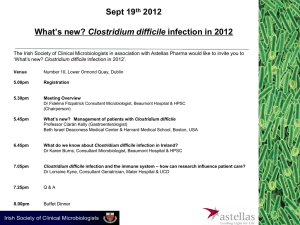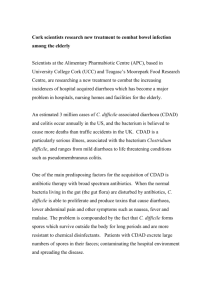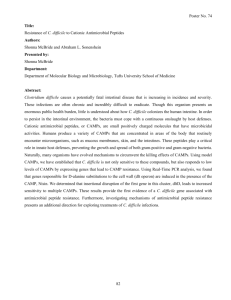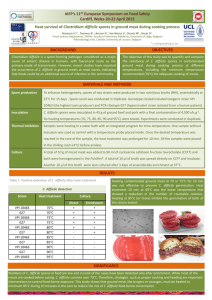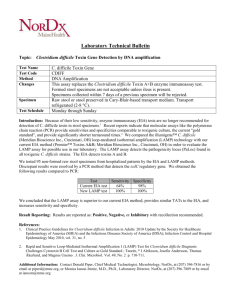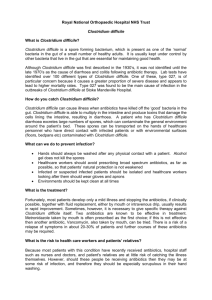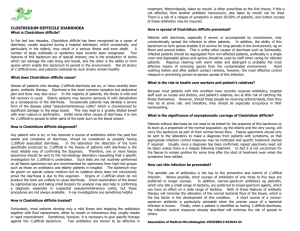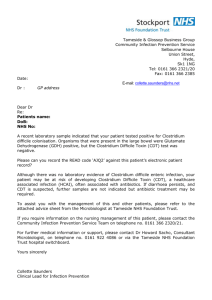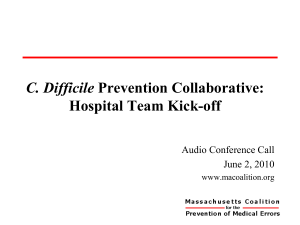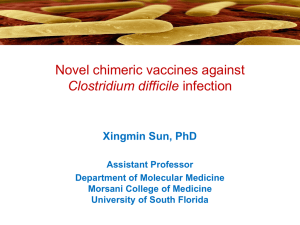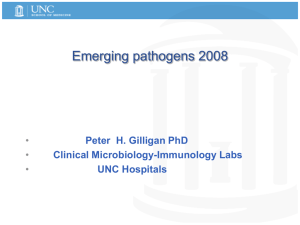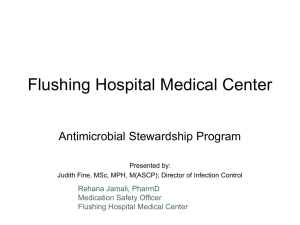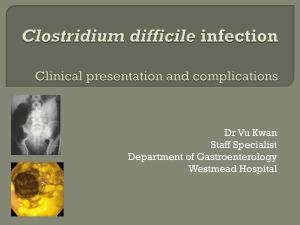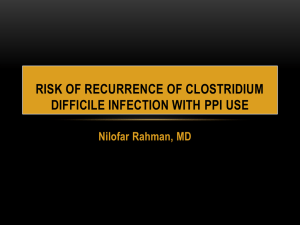Clostridium difficile Fact Sheet
advertisement
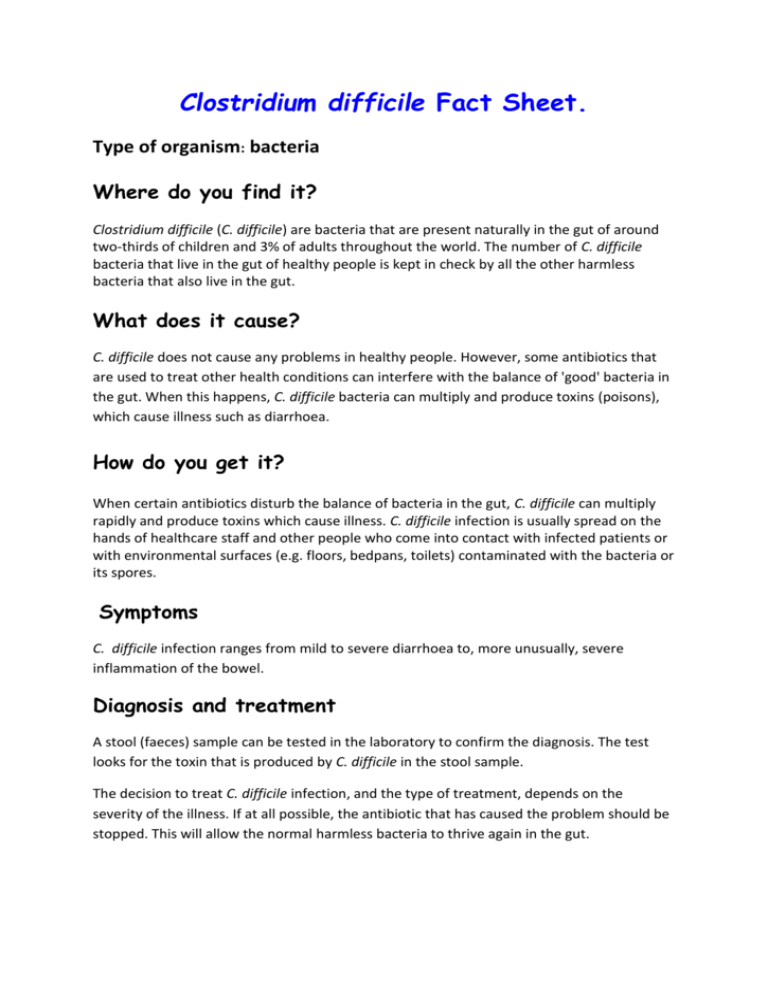
Clostridium difficile Fact Sheet. Type of organism: bacteria Where do you find it? Clostridium difficile (C. difficile) are bacteria that are present naturally in the gut of around two-thirds of children and 3% of adults throughout the world. The number of C. difficile bacteria that live in the gut of healthy people is kept in check by all the other harmless bacteria that also live in the gut. What does it cause? C. difficile does not cause any problems in healthy people. However, some antibiotics that are used to treat other health conditions can interfere with the balance of 'good' bacteria in the gut. When this happens, C. difficile bacteria can multiply and produce toxins (poisons), which cause illness such as diarrhoea. How do you get it? When certain antibiotics disturb the balance of bacteria in the gut, C. difficile can multiply rapidly and produce toxins which cause illness. C. difficile infection is usually spread on the hands of healthcare staff and other people who come into contact with infected patients or with environmental surfaces (e.g. floors, bedpans, toilets) contaminated with the bacteria or its spores. Symptoms C. difficile infection ranges from mild to severe diarrhoea to, more unusually, severe inflammation of the bowel. Diagnosis and treatment A stool (faeces) sample can be tested in the laboratory to confirm the diagnosis. The test looks for the toxin that is produced by C. difficile in the stool sample. The decision to treat C. difficile infection, and the type of treatment, depends on the severity of the illness. If at all possible, the antibiotic that has caused the problem should be stopped. This will allow the normal harmless bacteria to thrive again in the gut. People with more severe diarrhoea will normally be given an antibiotic that is known to kill C. difficile. This is usually vancomycin or metronidazole. As with any cause for diarrhoea, it is important that you replace the fluids that are lost in the diarrhoea. Prevention C. difficile is very contagious and it can spread very easily. Despite this, C. difficile infections can usually be prevented by practising good hygiene in healthcare environments, such as washing hands regularly and cleaning surfaces using products containing bleach help to prevent contamination of equipment and personnel with bacteria and spores. There is no vaccine to prevent C. difficile. http://www.patient.co.uk/health/Clostridium-Difficile.htm http://www.nhs.uk/conditions/Clostridium-difficile/Pages/Introduction.aspx http://news.bbc.co.uk/1/hi/health/8273863.stm http://news.bbc.co.uk/1/hi/health/7585668.stm http://news.bbc.co.uk/1/hi/health/4612779.stm http://www.guardian.co.uk/society/2007/oct/11/health.medicineandhealth1


